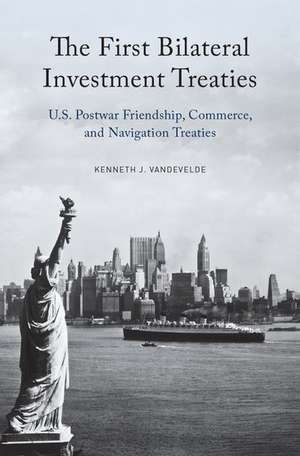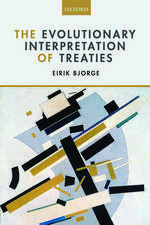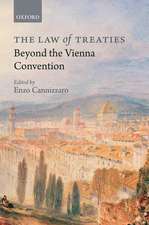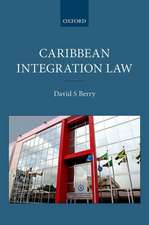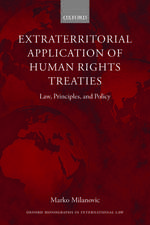The First Bilateral Investment Treaties: U.S. Postwar Friendship, Commerce, and Navigation Treaties
Autor Kenneth J. Vandeveldeen Limba Engleză Hardback – 8 iun 2017
Preț: 723.59 lei
Preț vechi: 1032.96 lei
-30% Nou
Puncte Express: 1085
Preț estimativ în valută:
138.49€ • 144.02$ • 115.89£
138.49€ • 144.02$ • 115.89£
Carte disponibilă
Livrare economică 11-17 februarie
Preluare comenzi: 021 569.72.76
Specificații
ISBN-13: 9780190679576
ISBN-10: 0190679573
Pagini: 592
Dimensiuni: 236 x 157 x 43 mm
Greutate: 0.98 kg
Editura: Oxford University Press
Colecția OUP USA
Locul publicării:New York, United States
ISBN-10: 0190679573
Pagini: 592
Dimensiuni: 236 x 157 x 43 mm
Greutate: 0.98 kg
Editura: Oxford University Press
Colecția OUP USA
Locul publicării:New York, United States
Recenzii
Professor Vandevelde has produce a remarkable account of the history of friendship, commerce, and navigation agreements.
Today the post-WWII consensus favoring free trade and capital flows is under severe strain. Kenneth Vandevelde, the leading historian of international investment law, reminds us how and why every U.S. President (starting with Franklin Delano Roosevelt) sought to use U.S. constitutional principles to project New Deal liberalism onto the world.
Professor Vandevelde provides a very much needed prequel to studies of the modern investment treaty regime. He traces key treaty provisions back to the late 1940s when efforts to launch an International Trade Organization failed, and investment principles then migrated into U.S. Friendship, Commerce, and Navigation (FCN) treaties. Most valuable is the chapter collecting the U.S. State Department's interpretation of provisions so central in bilateral investment treaties disputes today.
Today the post-WWII consensus favoring free trade and capital flows is under severe strain. Kenneth Vandevelde, the leading historian of international investment law, reminds us how and why every U.S. President (starting with Franklin Delano Roosevelt) sought to use U.S. constitutional principles to project New Deal liberalism onto the world.
Professor Vandevelde provides a very much needed prequel to studies of the modern investment treaty regime. He traces key treaty provisions back to the late 1940s when efforts to launch an International Trade Organization failed, and investment principles then migrated into U.S. Friendship, Commerce, and Navigation (FCN) treaties. Most valuable is the chapter collecting the U.S. State Department's interpretation of provisions so central in bilateral investment treaties disputes today.
Notă biografică
Kenneth J. Vandevelde is Professor of Law at Thomas Jefferson School of Law where he teaches international investment law and arbitration as well as public international law. He served as President and Dean of the law school from 1994 to 2005. Professor Vandevelde published extensively on international investment law, arbitration, and bilateral investment treaties authoring: United States Investment Treaties: Policy and Practice (1992), U.S. International Investment Agreements (Oxford, 2009), and Bilateral Investment Treaties: History, Policy, and Interpretation (Oxford, 2010). He published a number of articles on international investment law included in the American Journal of International Law. He served as a consultant on international investment law to the Senate Foreign Relations Committee, the United Nations and various foreign governments. He worked at the U.S. Department of State's Office of the Legal Adviser and the Execut
